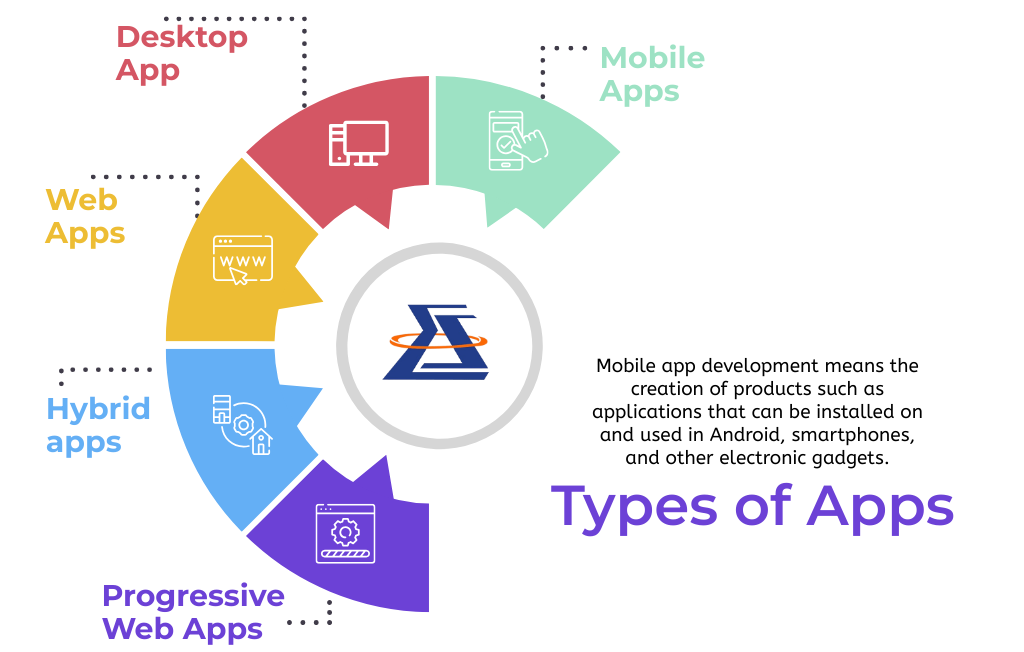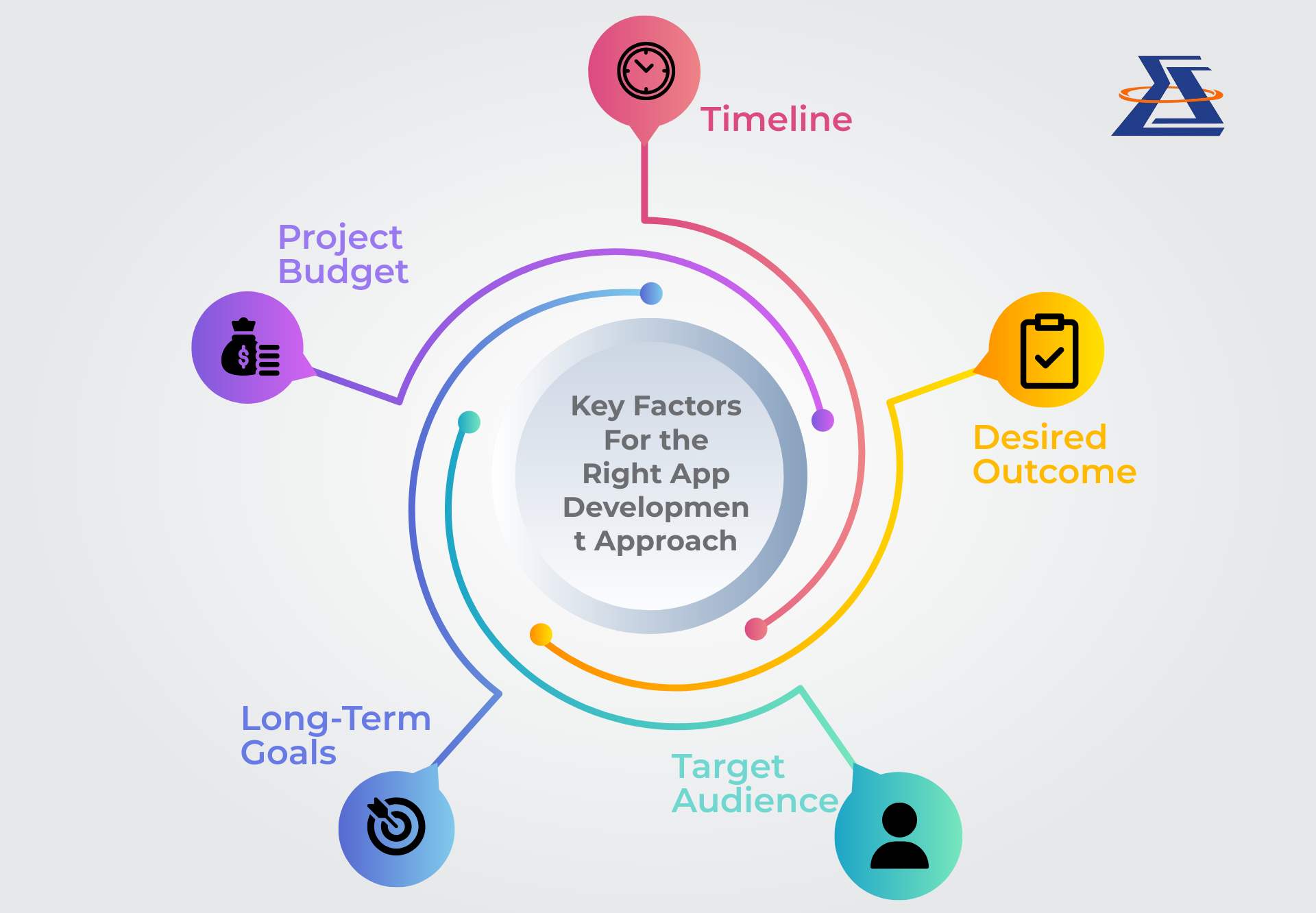Introduction
Overview
Software application development has been a permanent and critical part of society that strongly relies on technological advancements. The decision between cross-platform app development and native app development greatly defines project success, expense, and expectations projected to users. This decision determines the usage, downloads, and sustainability of the app in the highly saturated mobile application market.
Synopsis
This article explains all the specifics involved in cross-platform and native app development. Therefore, when businesses know the pros and cons of mobile app development, the special uses of mobile apps, and their uses of mobile apps, they will make good decisions based on the project’s requirements and goals.
Fundamentals of App Development
What is App Development?
Mobile app development means the creation of products such as applications that can be installed on and used in Android, smartphones, and other electronic gadgets. It involves developing programming, among other phases, that bring about functional applications that are easy to operate.
Application development involves designing, creating, testing, distributing, deploying, and supporting an application, along with app development costs, to efficiently serve client and user requirements.

Types of Apps
Mobile Apps:
When a software application runs on a mobile mobile operating system, it is called a mobile app. These devices can be smartphones, tablets, or even feature phones on an Android or Apple device.
Desktop App:
Desktop applications are those designed to run on PCs, including notebooks and workstations. Desktop app development provides a fair level of stability and strong integration with the operating system.
Web Apps:
Web applications built through web app development can be utilized using web browsers and can be run on any device without installation.
Hybrid Apps:
Hybrid app development ensures that these apps run only in browsers but can mimic native capabilities. It blends web and native characteristics and deliverables across platforms.
Progressive Web Apps (PWAs):
Web apps are web apps that give end users a fully native app experience, such as offline mode support and push notices.
Understanding Cross-Platform App Development
Cross-platform application development is a mobile application development approach that focuses on creating apps that work well on different operating systems and frameworks, including iOS, Android, and Windows, but without requiring a new codebase. Usually, cross-platform apps are developed using the Flutter app development method.
Advantages
Cost-effectiveness:
Another benefit linked to cross-platform app development is that it lowers cost since developers can use some of the code on other platforms and thus are not likely to develop different native applications.
Faster development:
A single codebase is a sign of faster development, especially for Android app development. It also means a quicker time to market and the possibility of updating all the supported platforms at once.
Consistent user experience:
These frameworks enable a consistent design across different platforms with interfaces, and the design feels similar to those of other devices.
Disadvantages
Performance limitations:
The abstraction layer that is employed when the application is built to be utilized on multiple platforms may occur at the cost of performance, which may affect the application’s speed and response time.
Platform-specific features:
As it will be a cross-platform app, it may not have very many accesses to the platform-specific features and API and hence may be limited in the advanced features.
Potential for compatibility issues:
Changes in language runtimes or the platforms and cross-platform frameworks may create incompatibilities that would need to be fixed and tested.
Understanding Native App Development
Native app development entails the process of mobile app development for specific native environments, for example, iOS app development or Android, using native paradigms, especially specific languages and tools. This approach optimizes the level of performance as well as integration with the target platform.
Advantages
Optimal performance:
Native apps provide better usability, taking direct access to the device’s hardware and middleware, providing better running and more optimal applications.
Access to platform-specific features:
Native app development offers full, unimpeded access to operating system features and application programming interfaces, which goes a long way in supporting complex functions and interaction with the device.
Seamless user experience:
Generally, native apps are cross-platform integrated and utilize better end-user interaction by closely following the standard UI design paradigms of the platform on which they are being developed.
Disadvantages
Higher development costs:
The approach of using different codes for different platforms also slows down. It costs more because developers dealing with mobile applications need to be different from those dealing with computing applications.
Longer development time:
Creating applications from scratch for all the intended platforms can take even more time than is useful for people in the market.
Cross-Platform vs. Native: A Comparative Analysis
Cost:
Looking at the app development costs, cross-platform app development is usually cheaper initially because the code can be reused. Native app development, while developed in-house, usually costs more initially but ends up saving on the costs of optimization for different platform architectures in the future.
Time:
Multimedia approaches are generally ‘first-better, concurrently worse’: they introduce more initial interface creation time but allow updates in parallel. While development may take longer if it is native to the different platforms, it allows for the faster resolution of platform-related problems.
Performance:
Cross-platform apps are slightly slower than native apps but are far more flexible in terms of design and development. However, post-modern cross-platform frameworks have bridged this gap closely, and in some instances, the applications almost run as if they are natively compiled.
User experience:
Native apps, on the other hand, have a more efficient look and feel like they are actually a part of the device’s operating system. Mobile solutions across devices have become better, yet they also have their share of issues, such as the inability to achieve a native-like appearance.
Scalability:
The app development comparison implies that the Storm approach is scalable, yet native apps may be somewhat more effective when it comes to growing user load. Cross-platform solutions also perform at the speed of update releases, in as much as they can apply changes to different platforms.
When to Choose Native App Development
Performance-critical applications:
Select native applications that demand enhanced speed and response time, such as graphic-sensitive games and real-time processing applications.
Platform-specific functionality:
Go for native app development only if your application is going to require the use of certain features, APIs, or hardware components that are specific to a particular operating system.
Long-term investment:
Native has the advantage of longevity; therefore, when you have a project that is going to be around for a while, you should use Native so that you can encapsulate your product from the OS changes.
Brand-focused user experience:
Because you want to give customers a platform-specific, branded experience for your app, it’s time to look at native.
Regulatory compliance:
Use the native app for the instance where one is developing an application for areas that have rigorous regulatory standards on platform-specific security tenets to abide by.
When to Choose Cross-Platform Development
Budget constraints:
When constrained by resources, it is advisable to pursue cross-platform app development, as these are economical for development across the various platforms.
Rapid prototyping:
Select cross-platform if you want to get fast feedback on your concepts or if you aim at building simple prototypes (or MVPs) for various platforms.
Content-driven apps:
Cross-platform apps should be chosen primarily for content delivery applications, where the value of specific platform features will be minimal.
Broad market reach:
One actually engages in a cross-platform development technique to reach different platforms and, in effect, make the maximum number of users possible.
Frequent updates:
Use cross-platform app development when you have a client app that you need to update on all the platforms it supports frequently at the same time.
Emerging Trends in App Development
Low-code/no-code platforms:
These tools allow mobile applications to be created quickly with little to no coding experience while creating a unified experience for every user.
AI-powered development:
Introducing artificial intelligence in coding processes has helped to enhance the developers’ efficiency by helping develop codes, detect bugs, and sometimes even generate code snippets.
5G integration:
The implementation of 5G networks is catalyzing the achievement of high throughput and low latency applications.
IoT app ecosystems:
IoT applications are emerging, and many devices are being linked, essentializing specific development approaches.
Augmented Reality (AR) integration:
AR features are gradually integrated into mobile applications, wherein they contribute to the application’s value for different sectors.
Choosing the Right Approach for Your Project
Key Factors to Consider

Project Budget:
Look at your budget and potential expenses today and in the future. App development costs determine whether cross-platform or native application development is more appropriate.
Timeline:
The app development comparison allows businesses to consider time-to-market and development schedules. Cross-platform may have the advantage of being faster to install on different platforms compared to native, which is easier to maintain in the long run.
Desired Performance:
Consider your app’s performance while assessing mobile app development requirements. Native app development is generally better in terms of performance, although there have been many problems with cross-platform app development solutions in the past.
Target Audience:
Webmasters can analyze their target users’ preferences and usage of the devices that access their websites. This insight will help in understanding if it is appropriate to have a focused approach towards one platform or if it is better to develop a solution that can be operated on multiple platforms.
Long-Term Goals:
Know whether the new feature set will be able to scale into new opportunities or form new features that require future maintenance. Pick an approach that supports your five-year or 10-year vision or even your strategic plan.
Real-World Examples
Case Studies
Instagram (cross-platform):
At first, Instagram prioritized the application’s development to be compatible with HTML5 for different platforms. They now use React Native app development for some features; while this shows that it takes advantage of cross-platform in some ways, it still stays native where necessary.
Uber (Native):
Native application development was adopted by Uber for both operating systems, namely iOS and Android. This enables them to also be close to platform specifics and give their users a perfect experience. Such specifics of native app development allow Uber to work effectively in complex real-time scenarios.
Conclusion
The decision to develop an app that runs on multiple platforms or is optimized to operate on individual operating systems determines the success of a particular project. Thus, cross-platform application development is entirely suitable for startups and businesses focusing on different operating systems at once, and it includes opportunities such as cost reduction and shorter time to market.
Although it consumes more resources, native app development offers the best-performing application that can easily interface with the device’s features. While deciding this, you should consider what type of project you are involved in, the money given to you or the money you would like to spend on this project, the time given to you or the time required on this particular small project, and the goals and objectives of the big project you are a small part of.
With time, more mobile app development technologies will enter the market. Call Sigma Solve at +1 954-397-0800 for a free consultation to devise a mobile app and strategy to reach the vast market and increase your ROI.
Source : https://www.sigmasolve.com/cross-platform-vs-native-app-development-which-is-right-for-you/
